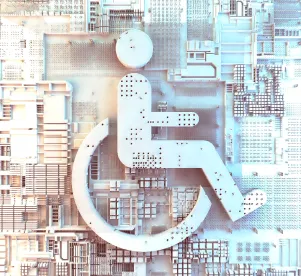While the intent of Title III of the Americans with Disabilities Act was to improve equality of access to goods and services offered by places of public accommodation, the Plaintiffs’ bar has seized on the law to recruit serial litigants—also known as “professional plaintiffs” or “paid testers”—to repeatedly sue businesses for minor, technical violations without actually seeking to purchase anything at all.
Earlier this year, the Ninth Circuit in Langer v. Kiser considered the question of standing in a case involving a serial litigant who had previously filed close to 2,000 ADA lawsuits. Private plaintiffs are limited to seeking injunctive relief under Title III of the ADA, so a plaintiff suing a place of public accommodation must show a sufficient likelihood of injury in the future to establish standing. For an ADA “tester,” the stated primary purpose of visiting a place of public accommodation is to “test” compliance with accessibility laws, rather than to purchase goods and services. In Langer, the district court noted this, doubted the plaintiff’s intent to return because of his involvement in so many ADA lawsuits, and it dismissed his case for lack of standing.
The plaintiff appealed and presented the Ninth Circuit with the question of whether a district court may rely on a plaintiff’s litigation history to question his credibility and intent to return to a place of public accommodation. At the time Langer issued, the Ninth Circuit had previously concluded that a plaintiff suing under Title III of the ADA can establish standing through being a “tester.” The Langer panel expanded on this negative precedent, confirming that a plaintiff’s motivation for visiting a public accommodation was irrelevant to standing. And while Courts of Appeal typically give great deference to district court findings relating to credibility, the panel deemed the district court’s credibility determinations improper to the extent they relied on the plaintiff’s serial litigation history.
Langer may not be the end of the story, however. In Acheson Hotels, LLC v. Laufer, 143 S. Ct. 1053 (2023), the U.S. Supreme Court granted a petition for certiorari to answer the following question: “Does a self-appointed Americans with Disabilities Act ‘tester’ have Article III standing to challenge a place of public accommodation’s failure to provide disability accessibility information on its website, even if she lacks any intention of visiting that place of public accommodation?” The First Circuit Court of Appeals in Acheson held that the plaintiff had standing to sue a hotel over whether its website provided sufficient information about the hotel’s accessible features, even if the plaintiff had no intention of ever booking a room at the hotel. The First Circuit thus joined the Eleventh Circuit in accepting “tester” standing to file an ADA Title III lawsuit. In contrast, the Second, Fifth, and Tenth Circuits have rejected ADA “tester” standing on identical facts, and the Fourth, Sixth, and Seventh Circuits (considering closely similar facts) all required a plaintiff to show that the plaintiff had an interest and intent to visit the public accommodation, beyond the desire to bring a lawsuit as an ADA tester.
With Acheson, the U.S. Supreme Court has the opportunity to resolve this circuit split and clarify whether “tester” standing is in and of itself sufficient to bring a claim under the ADA. We are continuing to monitor for further developments.





 />i
/>i

